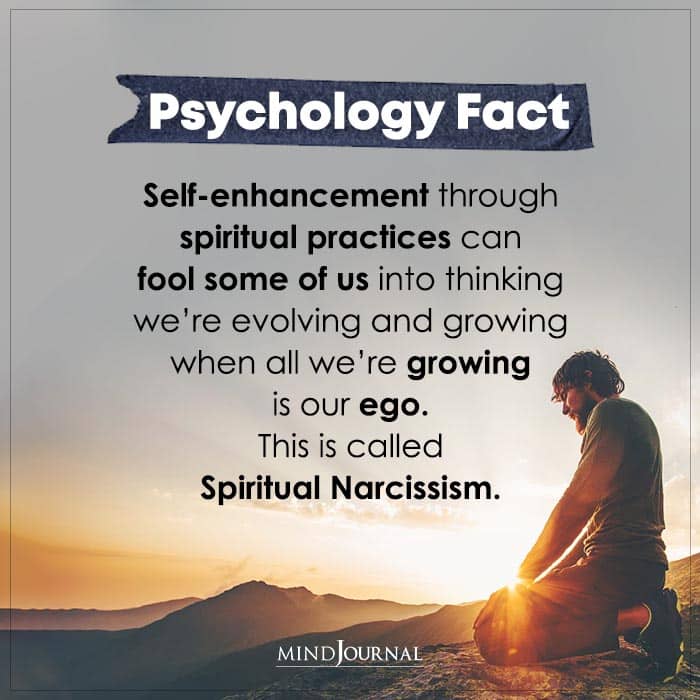Wondering how to tap into the transformative power of spiritual meditation? Let us dive in to explore spiritual meditation meaning, its benefits, and practical tips on how to incorporate it into your daily routine for inner peace and spiritual growth.
What is spiritual meditation?
Meditation has existed for millennia and has been practiced by nearly every spiritual tradition. But what exactly is the meaning behind spiritual meditation?
Spiritual meditation meaning: Spiritual meditation is a way to quiet the mind and connect with your innermost self, allowing you to access a deeper sense of peace, clarity, and understanding.
Spiritual meditation is a practice that has been used for centuries by individuals across cultures and religions to find inner peace and connect with their higher selves and the divine. It involves focusing your mind on a particular thought, object, or sensation to achieve a state of deep relaxation and spiritual awareness.
Spiritual healing meditation offers a transformative journey to discover the deeper aspects of our being. Simply put, the goal of spiritual meditation is to achieve inner peace and harmony by calming the restless mind through focused awareness.
Related: The Beginner’s Guide To Meditation
While physical meditation offers benefits like stress relief and increased focus, spiritual meditation aims at a higher truth – connecting us to our true selves and the divine. In spiritual meditation, we go beyond thoughts and ego to access our inner essence – our soul.

Understanding spiritual meditation meaning
At its core, spiritual meditation is a practice that aims to connect individuals with their divine essence, higher consciousness, or the spiritual dimensions beyond the physical realm.
It goes beyond the realm of ordinary thoughts and emotions, allowing us to tap into the profound wisdom, tranquility, and unconditional love that resides within us.
The spiritual meditation meaning lies in connecting our mind with the inner-self. When we meditate, we go beyond our thoughts to access the stillness within.
By meditating regularly, we strengthen our ability to tap into this deeper awareness and inner wisdom. We develop insight, peace, and a feeling of oneness with something higher.
Spiritual meditation provides a path for self-discovery. The practice of spiritual meditation is rooted in various spiritual traditions, including Buddhism, Hinduism, and Christianity.
But it is not limited to any specific religious or spiritual tradition but can be practiced by anyone, regardless of their beliefs or background.
Benefits of spiritual meditation
There are several benefits of understanding spiritual meditation meaning and practicing it regularly. Some of them are described below –
1. Cultivating inner peace and calmness
One of the primary benefits of spiritual meditation is the cultivation of inner peace and calmness.
By quieting the mind and entering a state of deep stillness, we can transcend the constant chatter and mental noise that often consumes our daily lives. This allows us to experience a sense of serenity, clarity, and tranquility.
2. Enhanced self-awareness and personal growth
Spiritual meditation serves as a powerful tool for self-reflection and self-awareness. Regular practice enables us to observe our thoughts, emotions, and patterns of behavior without judgment.
Through this heightened awareness, we gain insights into our true nature, recognize our strengths and weaknesses, and embark on a journey of personal growth and transformation.
3. Deepening connection with the divine
As we engage in spiritual meditation, we create a space within ourselves to connect with the divine.
Whether we refer to this divine force as God, the Universe, or any other name, the practice of spiritual meditation allows us to develop a profound relationship with something greater than ourselves.
This connection can provide a sense of guidance, support, and unconditional love, fostering a deep and meaningful spiritual journey.
Related: 20+ Best Meditation Music For Stress and Anxiety Relief
4. Stress reduction and emotional well-being
In today’s fast-paced world, stress has become a prevalent issue for many individuals. Spiritual meditation offers an effective remedy by helping to reduce stress levels and promote emotional well-being.
By immersing ourselves in the present moment and detaching from our worries and anxieties, we can experience a greater sense of calm and inner balance.
Here are some other benefits to practicing spiritual meditation on a regular basis –
5. Increased feelings of relaxation
As the mind settles through meditation, we experience a profound sense of inner stillness, calmness and peace that permeates our entire being. By quieting the mind and connecting with your inner self, spiritual meditation can help you feel more relaxed and calm.
6. Improved mental clarity and focus
Spiritual meditation can also help improve mental clarity and focus by reducing distractions and enhancing concentration.
7. Greater sense of purpose and meaning in life
Spiritual meditation can help connect us with our dharma or life’s deeper purpose, bringing greater meaning and fulfillment. It can help you understand your place in the world and your purpose, leading to a greater sense of meaning and fulfillment in life.
8. Self-realization
We realize our true nature – infinite awareness – separate from the mind and body.
Related: Mindfulness Meditation For Panic Disorder Relief
9. Spiritual growth and enlightenment
Spiritual healing meditation aids in cultivating virtues like love, wisdom, compassion and devotion. For the dedicated practitioner, meditation can lead to spiritual improvement and enlightenment – the highest goal of spirituality.
10. Better relationships
Spiritual insights gained through meditation help us relate to others and all beings with more love, understanding and compassion. The peace, love and compassion awakened through meditation spill over into our relationships, enabling us to relate from the heart.
11. Spiritual guidance
Many meditators report receiving internal guidance from their higher self or spirit guides during meditation.
12. Increased willpower
Meditation strengthens our ability to concentrate the mind and manifest our intentions.
13. Deeper intuition
As the ego-mind quietens through meditation, our intuitive wisdom and insights arise more freely from within.
14. Improved concentration
Meditation trains the restless mind to remain focused, leading to higher productivity and effectiveness in daily life.
15. Gratitude and contentment
As we realize our true nature through meditation, we become content with ourselves, appreciative of life’s simple gifts and able to let go of desires that cause suffering.
Understanding spiritual meditation meaning cultivates wisdom, peace and virtues while imbuing life with greater meaning, purpose, compassion and freedom from suffering. The benefits span all dimensions of our being – physical, mental, emotional and spiritual.

Types of spiritual meditation
There are many different types of spiritual meditation, but the common goal is to break free of our rational thinking mind and connect with inner peace.
1. Silent illumination meditation
Simply sitting in still awareness without concentrating on any object. The mind settles by itself into inner silence and illumination of being.
2. Mantra meditation
Repeating a spiritual phrase or name of the divine to still the mind and invoke spiritual energies and higher states of consciousness.
Related: Thrive In Cosmic Vibrations: Why You Must Start Chanting Mantras According To Science
3. Visualization meditation
Using imagination to visualize spiritual figures, light or sacred geometrical forms to induce non-dual awakened states.
4. Merging meditation
Focusing the attention and merging the mind with spiritual realities like the indestructible self, universal consciousness or divine absolute.
5. Focus meditation
This involves focusing your attention on an object, mantra or breath to still the thinking mind.
How to practice spiritual meditation
To practice spiritual healing meditation, you will need to find a quiet and comfortable place where you can sit or lie down without distraction. You may want to use candles, incense, or other objects to create a calming and spiritual atmosphere.
Here are the steps to understanding spiritual meditation meaning and practicing it regularly –
1. Find a comfortable position
Sit or lie down in a comfortable position. You may want to use a cushion or blanket to support your body.
2. Focus on your breath
Begin by focusing your mind on your breath, allowing your thoughts to drift away as you focus on the sensation of your breath moving in and out of your body.
3. Choose a point of focus
You may also want to focus on a particular image or thought that holds spiritual significance for you.
4. Observe your thoughts and emotions
As you continue to meditate, you may find that your mind begins to wander. This is normal, and it’s important to simply acknowledge any thoughts or feelings that arise without judgment and return your focus to your breath or chosen object.
5. End your meditation
When you feel ready to end your meditation, take a few deep breaths and slowly open your eyes. Take a moment to observe how you feel and what you’ve experienced during your meditation.
Related: How To Meditate Without Meditating: 7 Alternative Forms of Meditation
Common obstacles to spiritual meditation
Now that we have understood spiritual meditation meaning, we need to gain some awareness of the challenges we may face in our journey. Here are some common obstacles to spiritual healing meditation and tips to overcome them:
1. Laziness and lack of motivation
Overcome this by reminding yourself of the profound benefits of meditation for spiritual growth and wellbeing. Even short daily sessions add up over time.
2. Restless and wandering mind
This is normal. The key is to gently bring the attention back to your object of meditation each time the mind wanders. With patience and practice, the mind will settle.
3. Drowsiness
To avoid falling asleep, practice meditation in an upright posture, with your back straight. Open your eyes slightly or keep an object in front of you.
4. Physical discomfort
Sitting still can be uncomfortable at first. Use a meditation cushion or chair. Focus on your breath to distract from any discomfort. With practice it will lessen.
5. Boredom
Beginners often feel bored. Know that this dullness of the mind will pass as mindfulness and concentration develop with regular practice. Persevere.
6. Doubt about meditation
Question if it’s really working. Have faith that with consistency over time you will reap the benefits. Keep an open mind and trust the process.
7. Discouragement
Do you feel discouraged due to lack of “results”? Remind yourself meditation is a journey, not a destination. Even if your mind seems unchanged, regular practice transforms your being in subtle ways.
8. Expecting visions or experiences
Let go of such expectations. Spiritual meditation aims at realizing the witnessing awareness that is always present – not at creating new experiences.
9. Forcing the mind
Trying too hard to concentrate or control thoughts can backfire, causing more tension. Relax and allow the meditation to happen naturally. Let go of effort.
These obstacles are common and surmountable. The keys are consistency in practice (even just 10 minutes daily), patience, nonjudgement and letting go of expectations.
With time and persistence, obstacles tend to lessen as meditation becomes a habit and mindful awareness develops. So be kind to yourself, stick with the daily practice and have faith in the process.
Related: Sufi Whirling Meditation: The Cosmic Dance To The Journey Within
How to incorporate spiritual meditation into your daily routine
Incorporating spiritual meditation into your daily routine can be a powerful way to promote inner peace and spiritual growth. Here are some tips to help you get started:
1. Set aside time each day
The first step to incorporating spiritual meditation into your daily routine is to set aside time for it each day. Even just 10-15 minutes of meditation can be beneficial. Try to choose a time of day when you are least likely to be interrupted or distracted.
2. Create a comfortable space
Find a comfortable, quiet space. This could be a dedicated meditation room, a corner of your bedroom, or even just a quiet spot in your living room. Make sure the space is free from distractions and that you are comfortable sitting or lying down.
3. Choose a meditation technique
There are many different techniques you can use for spiritual meditation, so choose one that resonates with you. Some common techniques include focusing on the breath, repeating a mantra, or visualizing a particular image or thought.
3. Practice regularly
Try to make it a part of your daily routine, and stick with it even when it feels challenging or you don’t have much time. Over time, you’ll begin to see the benefits of your practice.
4. Be patient and kind to yourself
Remember that spiritual meditation is a practice, and it takes time and patience to develop. Don’t get discouraged if you don’t see immediate results, and be kind to yourself as you navigate the ups and downs of your practice.
Incorporating spiritual meditation into your daily routine can be a powerful way to cultivate inner peace, spiritual awareness, and personal growth.
Related: Why Meditation Is Essential For Success
The essence of spiritual meditation meaning
Spiritual meditation cultivates wisdom, peace and virtues while imbuing life with greater meaning, purpose, compassion and freedom from suffering. The benefits span all dimensions of our being – physical, mental, emotional and spiritual.
The essence of spiritual meditation lies in going inward to realize our true nature as limitless, peaceful awareness – the same consciousness that pervades the universe. By contacting our higher self through meditation, we awaken spiritually and experience unity with all existence.
Our restless ego-mind settles into inner stillness and wisdom, bringing freedom, fulfillment and a deep sense of purpose and meaning to life.










Leave a Reply